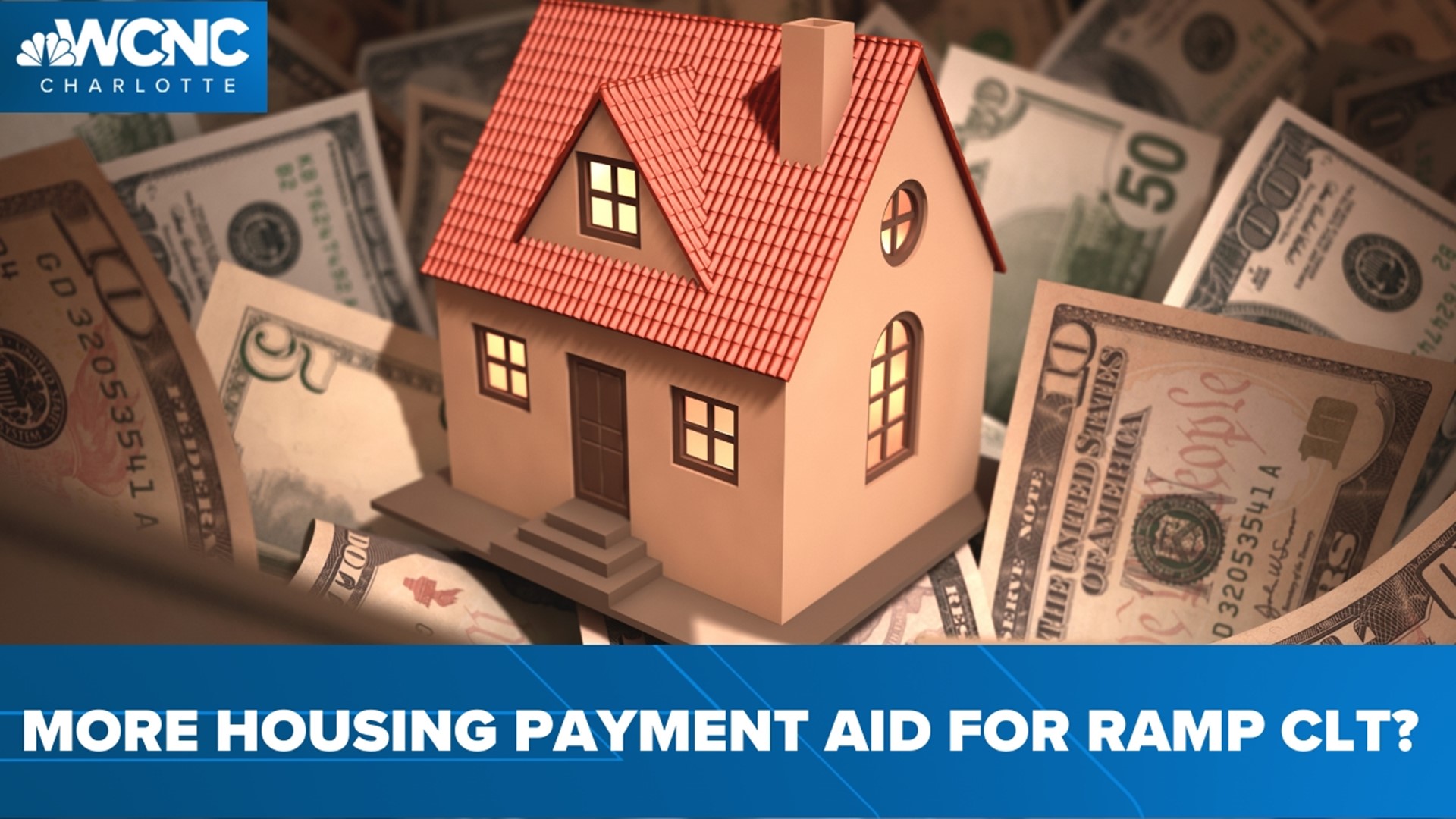MECKLENBURG COUNTY, N.C. — A key lifeline for Mecklenburg County homeowners and renters struggling to make payments because of COVID-19 impacts could get more funding.
DreamKey Partners were authorized to utilize $26.4 million in funding which were approved by the Mecklenburg County Board of County Commissioners on May 18. RAMP CLT could potentially use the funding to continue assisting with rental payments and utility bills.
Applications for the program have been opened at different periods throughout the pandemic. In April, the program re-opened applications after the Mecklenburg County government set $1 million of CARES Act funding through the community block development program. They received $20 million, since then as of May 18, there has been $8.5 million awarded, with $11.5 million left. That funding was available to households in Cornelius, Davidson, Huntersville, Matthews, Mint Hill, Pineville, and unincorporated parts of the county.
Those seeking help with payment assistance can apply on the first of each month online.
The potential for additional funding comes as cities and towns across the Charlotte area seek solutions for affordable housing. Charlotte's West Side neighborhood expanded its community land trust to keep homeownership affordable. In Statesville, a parcel of land is home to two tiny homes dedicated to getting homeless veterans back on their feet.
The need for rent payment help continues to be seen in the Charlotte area. Mike Lombard lives in the South End area, and he's now between a rock and a hard place. His lease is up at the end of July, and a 12-month lease of more than $2,300 is out of reach. A one-month extension would be beyond that.
"I just got recently quoted a one-month extension for $6,400," he told WCNC Charlotte reporter Lexi Wilson. "We're already on our way out."
Even as the COVID-19 pandemic moves to the endemic phase, there are some long-term issues beyond physical health, according to DreamKey chief strategy officer Erin Barbee.
"While people have said the pandemic is coming to a close, the impact of the pandemic is still being very much seen," she said. “We’ve seen a steady flow of applications month over month, haven’t seen that decrease at all in 2022, which shows us people are still hurting and there’s a need for assistance.”
If the county commissioners greenlight the funding, every dollar will count according to Barbee. That funding could help provide a critical lifeline to people still struggling.
"There will be an end date for RAMP CLT, but at this point we don't know what that is," she said. "It depends on the amount of funding we have, but we know the city and county are working hard to look at how we turn this into an emergency program to where we're still that safety net for people."
Contact Lexi Wilson at lwilson@wcnc.com and follow her on Facebook, Twitter, and Instagram.
WCNC Charlotte is part of seven major media companies and other local institutions producing I Can’t Afford to Live Here, a collaborative reporting project focused on solutions to the affordable housing crisis in Charlotte. It is a project of the Charlotte Journalism Collaborative, which is supported by the Local Media Project, an initiative launched by the Solutions Journalism Network with support from the Knight Foundation to strengthen and reinvigorate local media ecosystems. See all of our reporting at charlottejournalism.org.
WCNC Charlotte is always asking "where's the money?" If you need help, reach out to WCNC Charlotte by emailing money@wcnc.com.

